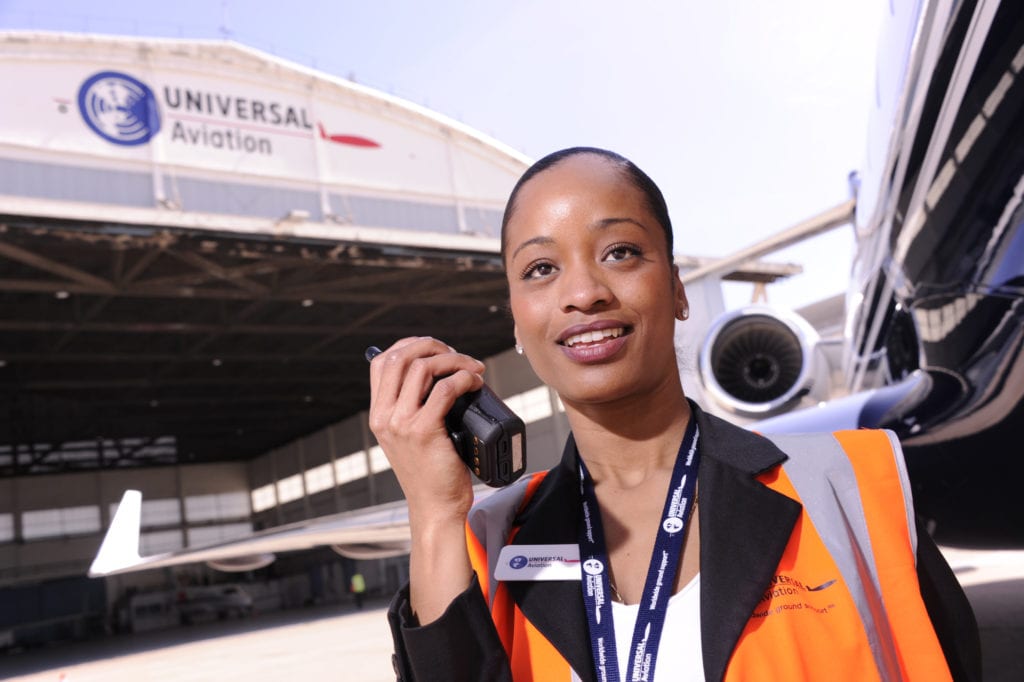France: 2025 Business Aviation Destination Guide
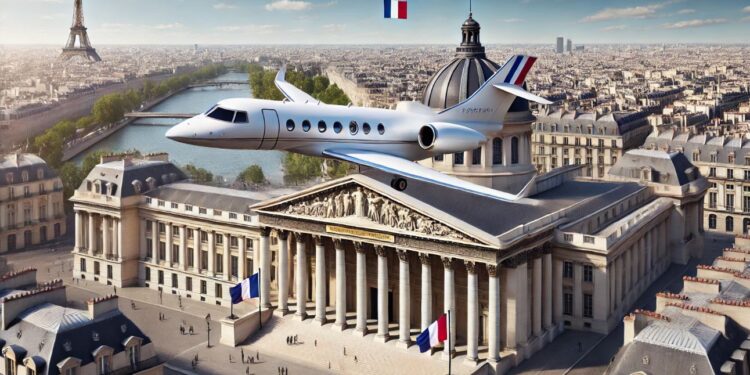
For more information on France, visit our destination and high-traffic event guides:
France is one of the most visited and sophisticated business aviation markets in the world. With world-class services, operating to this country is relatively straightforward. Our guide covers everything from Prior Permission Required (PPR) procedures and landing permits to flight planning, customs clearance, and cultural considerations, as well as the unique challenges of operating at regional airports, managing potential fuel shortages, and preparing for peak seasons in popular locations. Whether you’re a seasoned operator or new to the region, our guide equips you with the knowledge and insights necessary to plan and execute successful business aviation trips to France.
PPR Overview
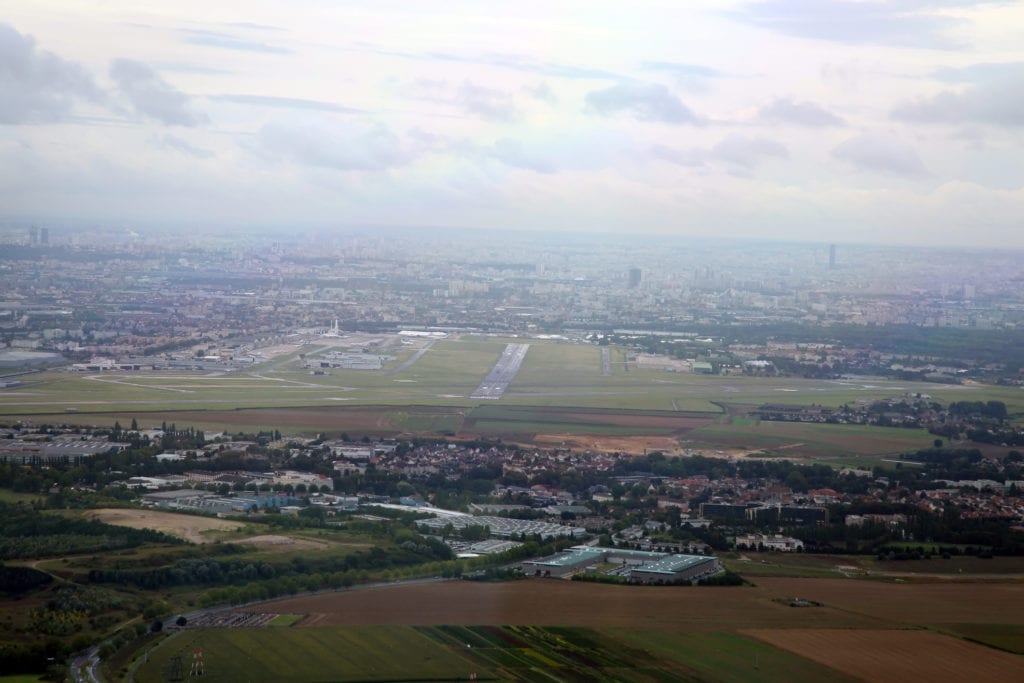
Paris le Bourget airport is one of the French Airports requiring PPR.
A Prior Permission Required (PPR) is necessary for certain airports in France, typically due to parking availability. PPR requirements can be seasonal or event-specific. Ground handlers usually request PPRs from local airport authorities or the Chamber of Commerce at smaller regional airports. Once a schedule is set, submit requests promptly with complete operator and aircraft information. Include the PPR confirmation number in the remarks section 18 of the flight plan.
Permits
Landing Permits
Charter flights require charter permits, and experimental aircraft operations require permits to fly in France.
Document requirements are registration certificate, insurance, and special airworthiness with limitations.
Non-EU charter operators must obtain permits to avoid grounding and impounding. The official lead time is two business days, excluding weekends and holidays.
In case of nom-objection for 5th and 7th freedom of the air exemption, two additional days are required. All operators must be TCO-approved prior to starting the process. For the TCO application, visit http://www.easa.europa.eu/easa-and-you/air-operations/tco-third-country-operators.
Permit Documentation
Charter Permit Process
Submit the permit request with a full schedule, operator and aircraft details, crew and passenger information, , appropriate European Union (EU) insurance complying with European regulation EC-785/04, registration certificate, Valid airworthiness certificate, and noise certificate.
EU Charter Operators and Landing Permits
EU-registered charter aircraft under 20 seats or MTOW below 10 Tons or sales revenue less than 3,000,000 € do not require charter permits. International charter legs inbound or outbound from France with EU-registered aircraft do require permits, following the same process as non-EU-registered aircraft.
Permit Validity and Fees
French landing permits have a +/- 72-hour validity. Schedule changes beyond this window necessitate permit re-confirmation. Typically, permits can be re-confirmed within 24 hours during regular CAA weekday hours (9 a.m.-4 p.m.). Changing or adding destinations within France requires a new permit. Although there are no government fees for permits, except for experimental aircraft overflight or landing permits, ground handlers may charge a small fixed fee for assistance.
Solidarity Tax
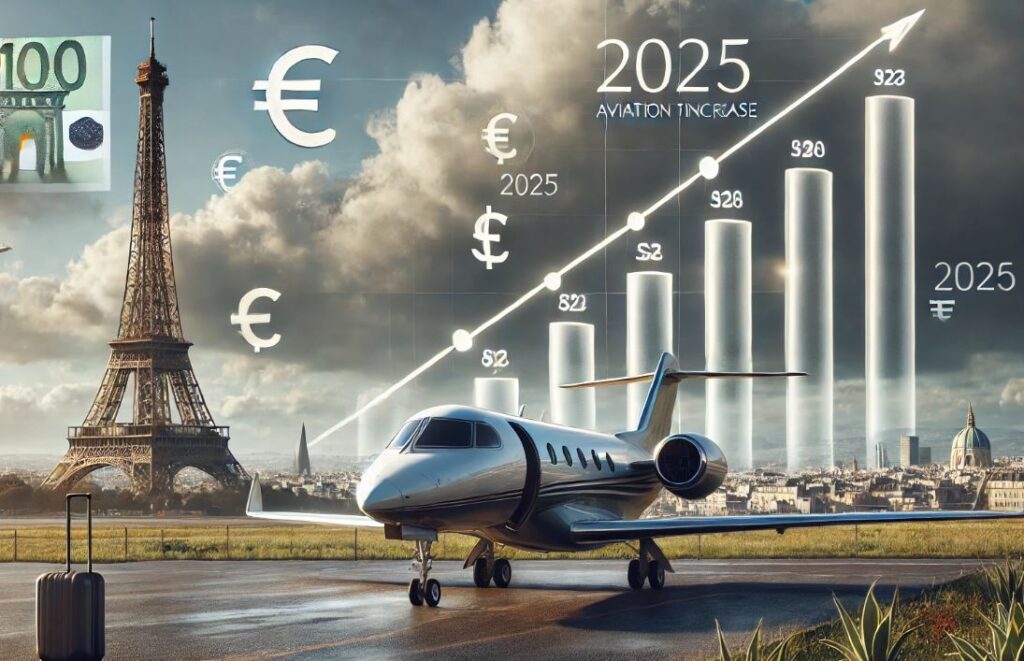
Cabotage Regulations
Flight Planning Essentials
In France, flight planning is generally straightforward, but understanding format and lead time nuances is crucial to prevent delays. Your 3rd-party provider and local ground handler can assist with procedural requirements and address potential slot and airport delay issues.
ATC Procedures
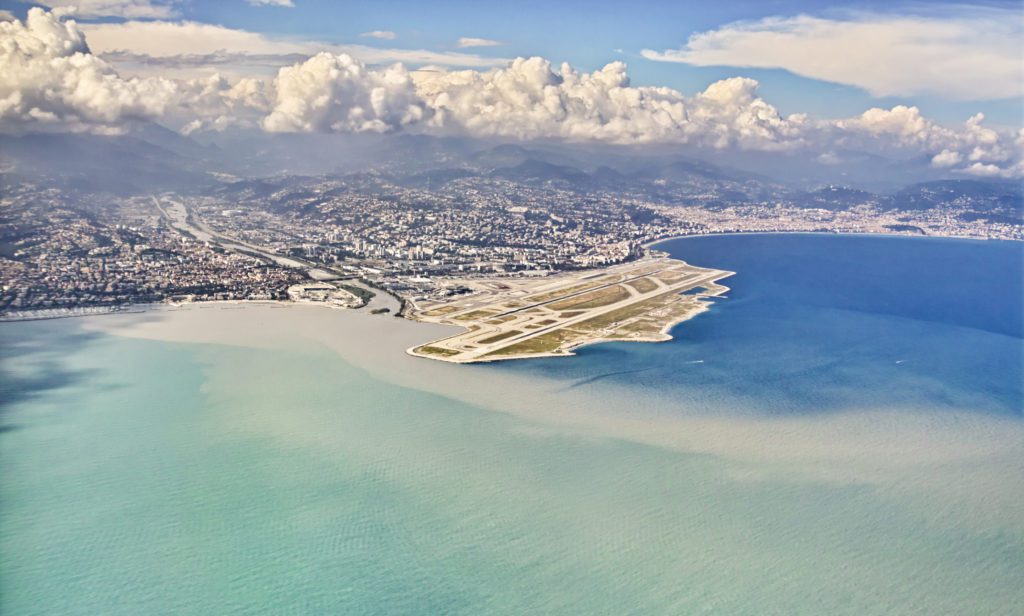
Nice (LFMD)
Flight plans are filed through Eurocontrol on airways, with direct routings reserved for very short flights. File flight plans at least 3 hours before the estimated departure time for optimal traffic and airway slot planning. PPR and slot numbers, when delivered, must be included on flight plans, and the destination ground handler should be mentioned in remarks 18, so Air Traffic Control (ATC) can direct you accordingly.
For airports requiring slots and/or prior permission (e.g., Nice [LFMN] or Cannes [LFMD]), always indicate airport slots and permit approvals on the flight plan. Flight plans in France are filed via SITA, with ATC preferring Very High Frequency (VHF) communication. However, ground operations communication is typically conducted via phone.
Required Equipment
For operations in France, ensure your aircraft is equipped with TCAS II, EGPWS, 8.33 MHz radio spacing, and RVSM certification.
Flight Plan Validation
There is no need to contact ATC for flight plan confirmation unless self-filed by the operator. Ground handlers will use the Network Manager (NM) website, formerly known as CFMU, to verify the flight plan. Some handlers can make changes within the CFMU system. If airway slot delays occur, ground handlers will inform the crew.
Engine Startup and Taxi
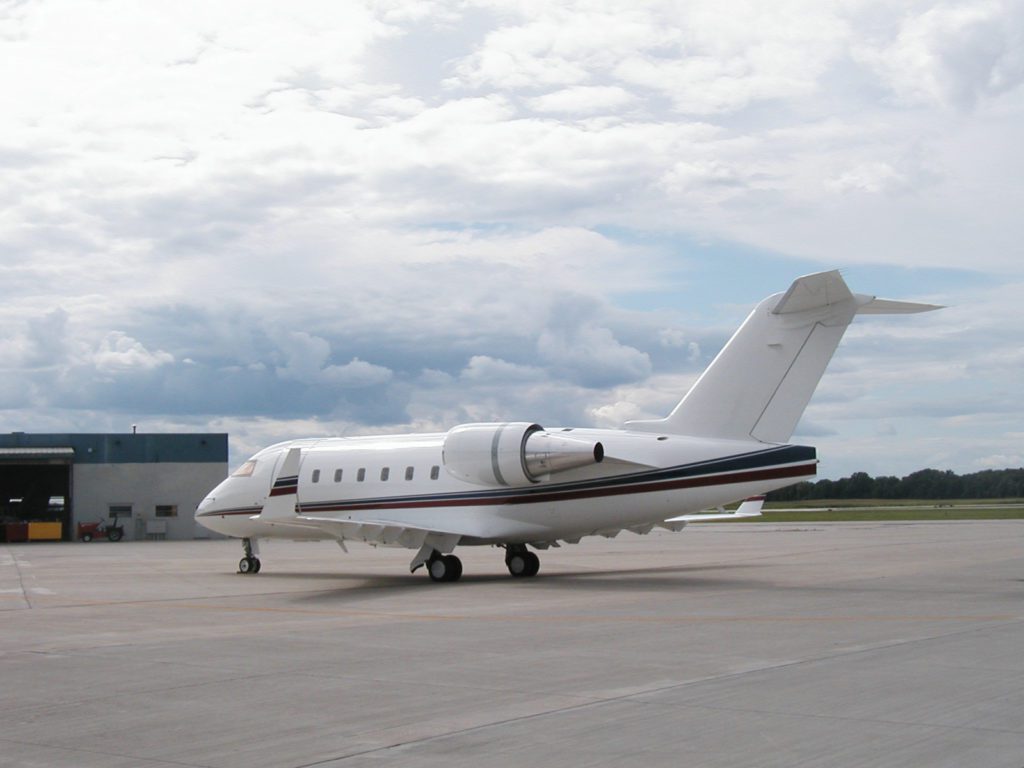
ATC approval is necessary before engine start in France, as it activates your flight plan. Although most parking areas allow self-powered departure, some may require towing to the startup position. Towbars are generally available for standard business aircraft types at major airports like Paris Le Bourget (LFPB). However, verify towbar requirements and availability at smaller regional airports.
Security Search Requirement
- Mandatory Security Search: All departing aircraft must undergo a security search performed by the flight crew on the day of departure.
- The captain must sign a security search form and submit it to the handler before operations.
- No exemptions, regardless of aircraft registration, flight type (private, charter, or commercial), or helicopter flights from Monaco.
- Contact your operations team for guidance on what must be included in this security search form.
Peak Season in France
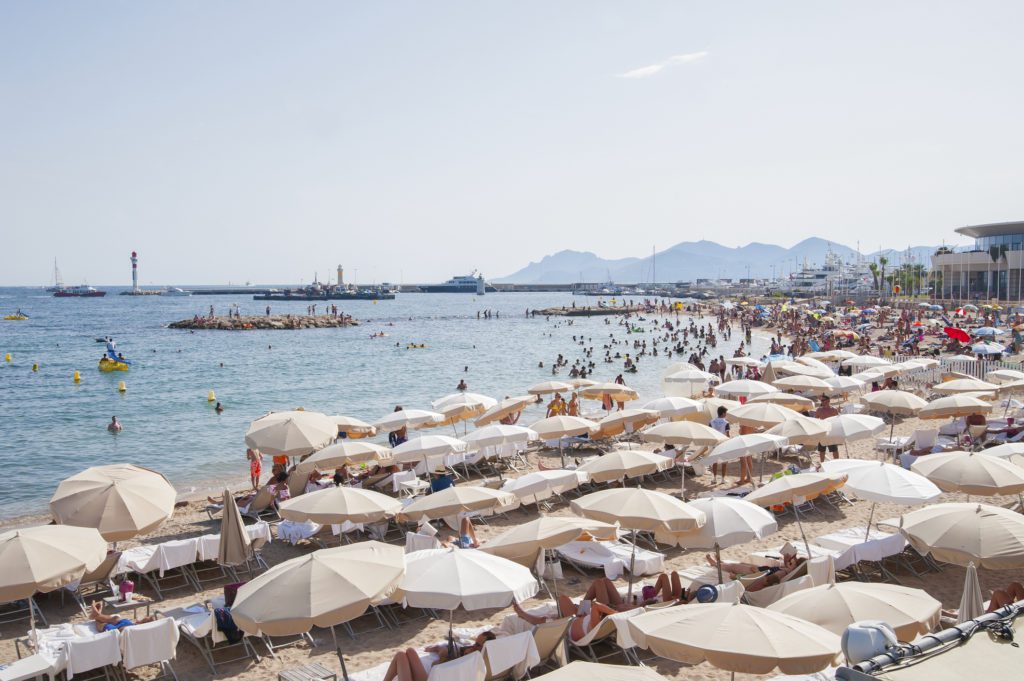
The peak season in France runs from May to October, with Med-area destinations like Nice (LFMN), Cannes (LFMD), Marseille (LFML), and Toulon (LFTH) being the most popular. Paris experiences high traffic levels during June and July, as well as March, September, and October. Major events, such as the Paris Airshow, Fashion Weeks, and the French Open, can cause congestion and limited services in Paris.
Hotel Availability and Pricing
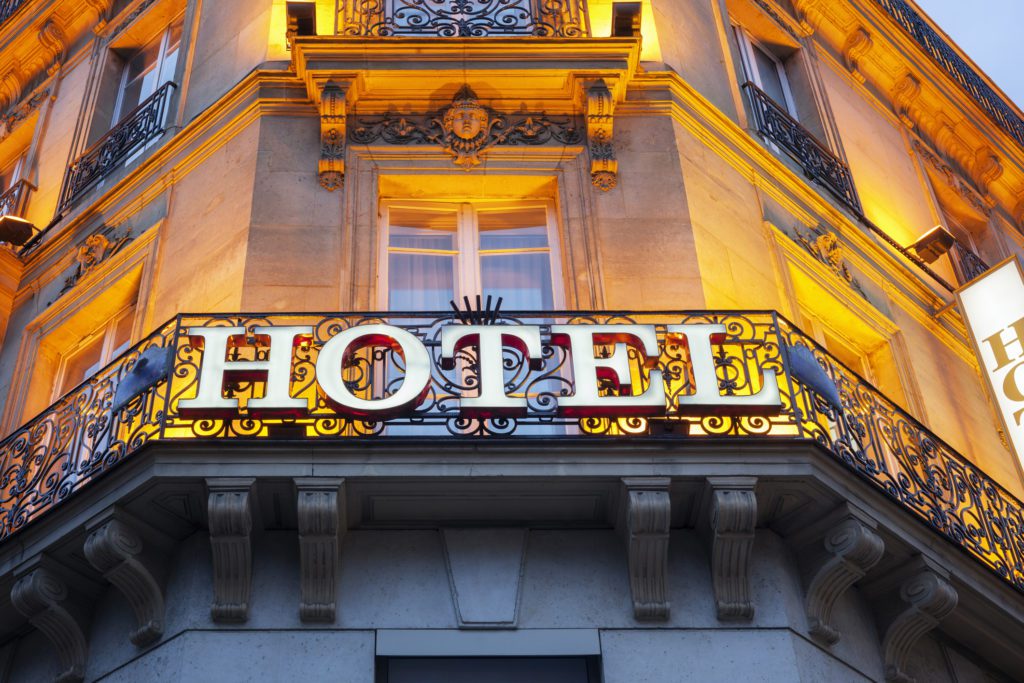
During peak season, hotels in popular French locations fill up quickly, leading to higher costs and extended cancellation policies. During major conferences or events, hotels may sell out, requiring non-refundable deposits and stricter cancellation policies. Large events in Paris typically occur between May and September, while Nice and Cannes hotels are in high demand during the Cannes Film Festival and Monaco Grand Prix in May. In sold-out situations, travelers may need to stay at remote hotels over an hour away.
Transportation Options
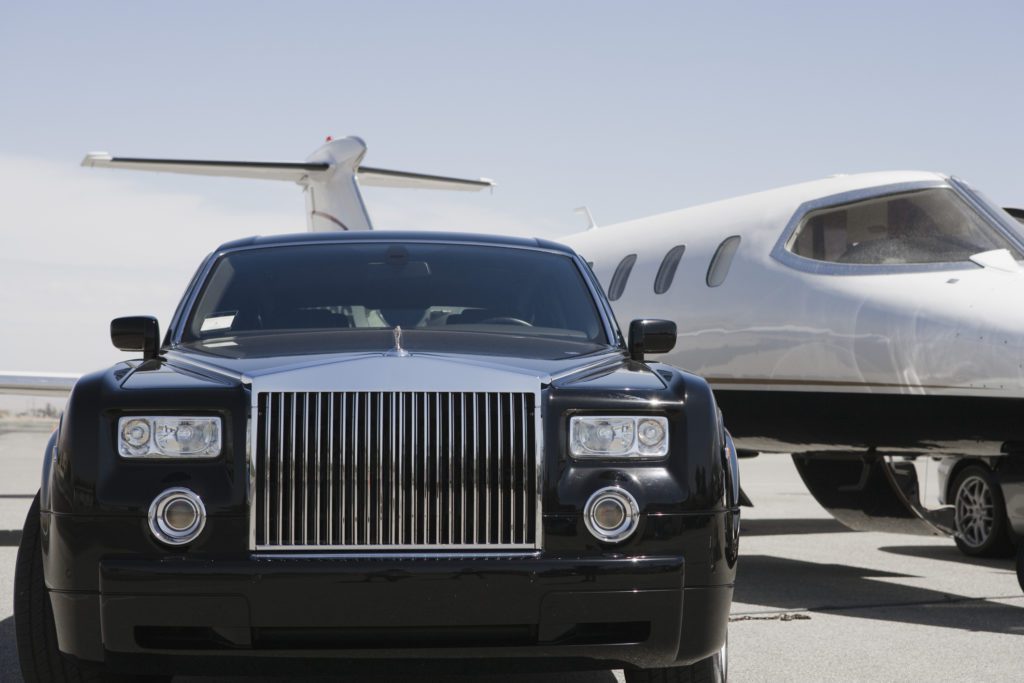
For unique local transportation, such as SUVs or stretch limos, make requests early, as availability may be limited. Feasibility-IQ can provide insights on destination trends and peak travel months.
Tech Stop Considerations
At major airports like Le Bourget Paris (LFPB), turnaround time typically ranges from 30 to 60 minutes, influenced by traffic, peak hours, and fuel volume. Ensure the fuel truck has adequate fuel on standby and inform your fueler if fuel testing is necessary before delivery. Turnaround service at regional airports may be slower, even with prearranged fuel, as commercial flights take precedence. Passengers can stay on board during fuel uplift in France.
No visas or mandatory vaccinations are required for tech stops when no one disembarks the aircraft. If crew or passengers enter the FBO or terminal, they must clear security before returning to the aircraft.
Customs
Customs Clearance
In France, GENDEC is mandatory for all flights, including nationals. International business/private aviation arrivals clear customs and immigration onboard or at a Fixed Base Operator (FBO), or the main commercial terminal. Collaborate with your 3rd-party provider to confirm clearance processes at all intended destinations and optimize the procedure.
At major airports like LFPB, ground handlers advise the Police for immigration clearance, which takes 5-20 minutes for typical business aircraft arrivals. For groups of over 30 passengers, clearance may take longer. At regional airports, clearance occurs at the main terminal and may take an hour or more during peak hours. Expedited clearance is usually unavailable.
Passenger Customs
Passengers generally clear customs and immigration first, followed by the crew, particularly at commercial terminals. At FBOs, crew and passengers often clear together. Crew and passenger information is provided in advance, and agricultural clearance is no longer required. Ground handlers dispose of international trash. Clearance times vary based on location—FBOs and onboard clearances take minutes, while main terminal clearances can exceed an hour.
Crew Customs
Crew members must submit a complete general declaration with all crew and passenger information. Visa requirements for crew depend on nationality. Clearance times vary between FBOs (5-10 minutes) and commercial terminals (up to one hour). Crew clearance lanes may be available.
Customs Restrictions and Regulations
Customs may not always be available, especially at regional airports, so arrange clearance 48 hours in advance. Ensure up-to-date vaccination documentation for pets to avoid quarantine procedures. Guns or cash above the 10,000-Euro limit can remain onboard without declaration. No fees apply for customs or immigration clearance.
Documentation
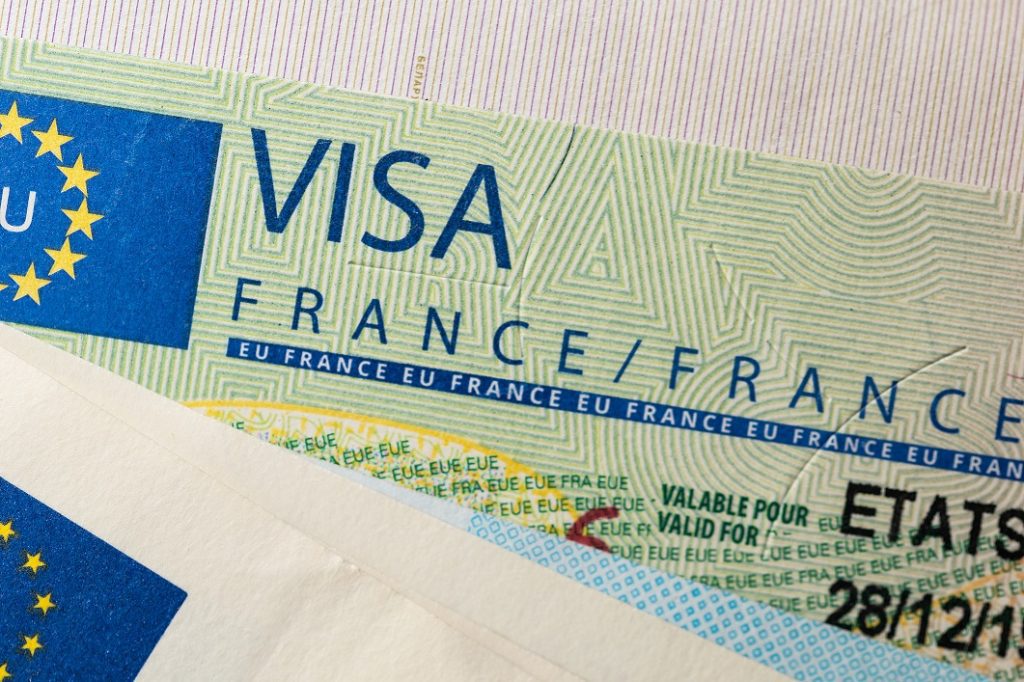
Valid passports 3-month remaining validity required), visas when applicable, crew IDs, and medical certificates must be readily available. Check visa requirements with your visa or 3rd-party provider. Passports are acceptable until the expiration date for all crew members and passengers. Some visitors may need a Schengen visa, which must be obtained before arrival, as France does not issue visas upon arrival. In France, customs clearance is not needed for tech stops.
Ramp Checks
When arriving from non-Schengen countries, prepare standard documentation (airworthiness certificate, registration, insurance, noise certificate, crew licenses and medicals, SMS Program, and general declarations) for potential ramp checks. These checks are more frequent for charter operators on international routes.
Regulatory Considerations
Be mindful of French air traffic controllers strikes, especially during the summer peak season. Air congestion regulations may apply when flying to the northeast.
Quarantine & Agricultural Requirements
Certain items and foods cannot be offloaded in France. Dogs and cats, except racing dogs, are allowed if over three months old, permanently identified, and with valid health/rabies certificates. Catering may remain onboard in Paris, with refrigerated items stored at FBO/ground handlers. Be aware of prohibited items, such as specific fruits and caviar quantities. Declare regulated items to avoid issues upon arrival. Consult the government site for agricultural restrictions in France.
VAT Reclaim upon Departure
To reclaim VAT on items purchased in France and in Europe, if France is your last stop in the EU that you carry with you, visit a VAT reclaim office in the main terminal. Due to potentially long lines, complete this process well before departure. Ensure you have all receipts, the actual items, and your passport to successfully reclaim VAT.
Compliance with Special Requirements in France
Pilots in France must adhere to International Civil Aviation Organization (ICAO) regulations. Both captains less than 60 and the first officer must be under 65, hold first-class medical certificates, and have the appropriate type-ratings. Safety Assessment of Foreign Aircraft (SAFA) ramp checks are more frequent in France, so ensure accurate documentation for aircraft and crew to prevent delays from unannounced checks.
Safety & Security
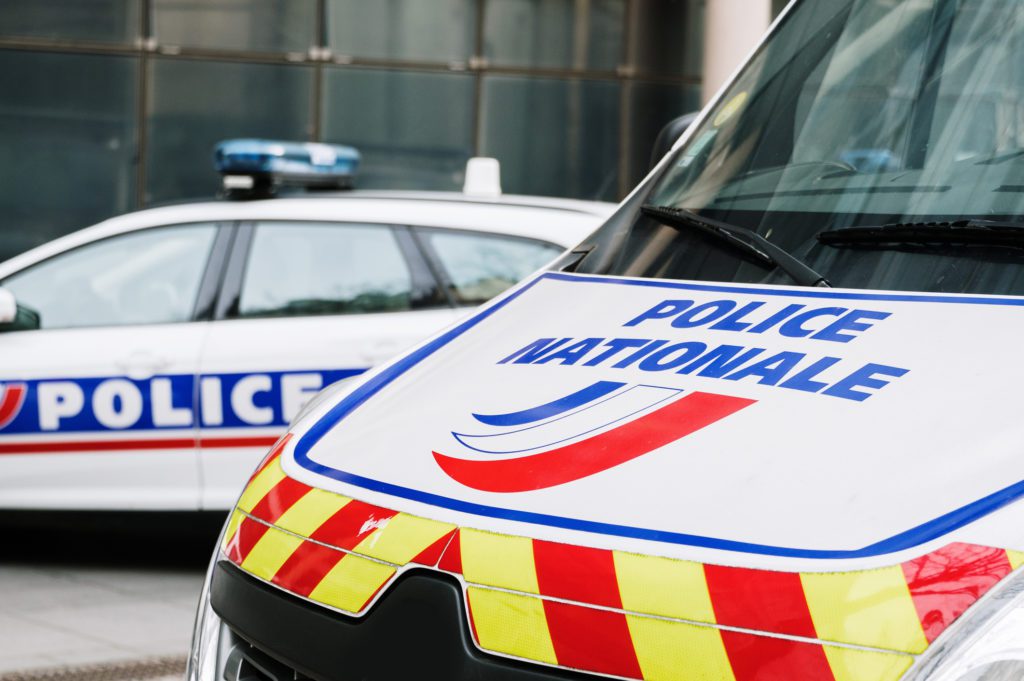
France is relatively safe off-airport. Exercise caution in high-crime metropolitan areas by staying in safer neighborhoods, being vigilant at night, and maintaining situational awareness.
Strikes & Holidays

Airport and ATC strikes are announced via NOTAMs, often with short notice and limited detail. Strikes usually occur on weekdays. France has about 25 public holidays annually. During holiday periods, particularly in August, many services may be closed or offer limited availability.
Cultural and Operational Considerations
French Cuisine and Business Meetings
 Food plays a vital role in French culture, with coffee commonly served before business meetings. Business lunches in France can span several hours, so avoid scheduling meetings immediately after a business lunch.
Food plays a vital role in French culture, with coffee commonly served before business meetings. Business lunches in France can span several hours, so avoid scheduling meetings immediately after a business lunch.
Limited Services at Regional Airfields

At regional airports, the local Chamber of Commerce may manage your aircraft in the absence of private ground handlers. These entities may have limited English proficiency, ground support equipment, and third-party service coordination capabilities. Repositioning a supervisory agent from a major city may be impractical or restricted. Plan for limited services and support when visiting regional airports in France.
Potential Fuel Shortages
Certain airports, such as LFMN, LFMD, and LFML, may experience fuel shortages, particularly on weekends, due to regulations restricting fuel truck operations on highways from Friday evening to Sunday night. Uplift fuel upon arrival when operating on weekends, and always confirm fuel in advance. Be prepared for possible delays in fuel uplifts due to commercial aviation activity.
Pre-arrange Fuel and Services
Pre-arranging fuel and 4th-party services are crucial for business aircraft operations in France, especially on weekends or at smaller regional airports. While airport security is consistently good, services, amenities, and credit may be limited at smaller locations.
Universal Aviation France Can Help
Universal Aviation has had a presence in France for more than 35 years. Headquartered in Paris at Le Bourget, Universal Aviation France supports missions throughout the country. Contact the team for more information.



